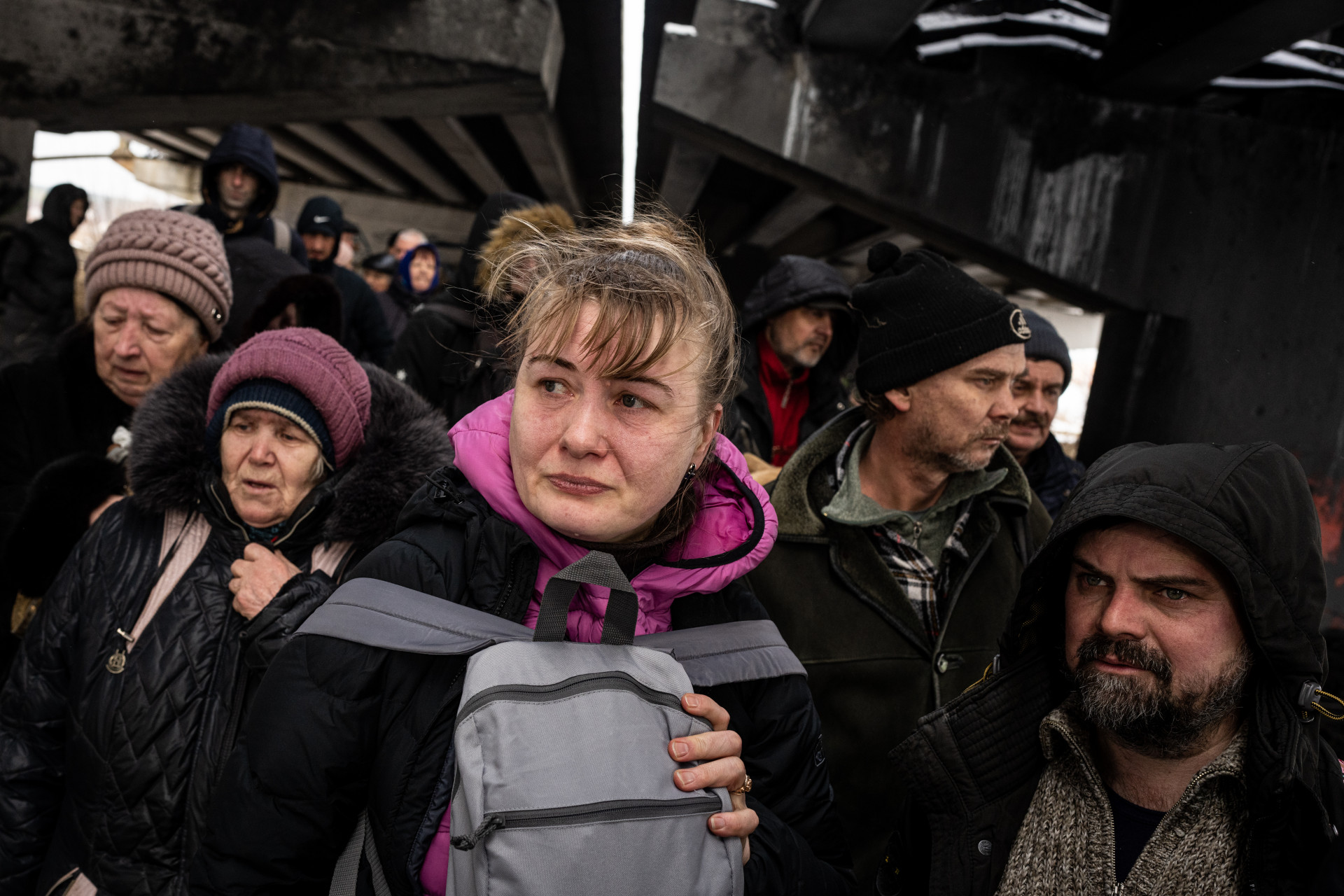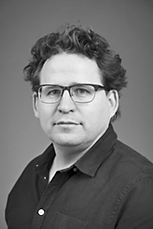
WAR IN EUROPE
Russia’s work and Germany’s contribution
Putin‘s invasion of Ukraine has shaken German politics out of its naivety. How could the country so collectively succumb to such a dangerous misconception?
TEXT: WOLFRAM EILENBERGER

WAR IN EUROPE
Russia’s work and Germany’s contribution
Putin‘s invasion of Ukraine has shaken German politics out of its naivety. How could the country so collectively succumb to such a dangerous misconception?
TEXT: WOLFRAM EILENBERGER
The Federal Republic of Germany's exit from self-inflicted geopolitical immaturity occurred at the end of February 2022 with an abruptness usually associated with fairy tales or philosophical thought experiments. As if all the government parties of the past decades had awoken from a bad (or good?) dream, within 48 hours they reversed some of the central dogmas of German foreign and defence policy: delivering weapons to war zones was suddenly considered necessary, while essential strategic partnerships became effectively dispensable; defence budgets were increased by 100 billion euros in one fell swoop; carefully cultivated distinctions between private-sector and government interests, think of Nord Stream 2, were discarded in a heartbeat.
There is even talk of reintroducing compulsory military service, along with a return to nuclear power. And, as in a fairy tale, there is also the evildoer from whose nefarious influence Germany has suddenly awakened: Vladimir Putin, leader of the Russian Federation for 22 years.
More importantly, it is necessary to examine why it is that Germany was so blind and didn’t want to see what was happening.
No difference
For decades, German foreign policy was shaped by relations with Russia, and the political consensus there seems to have been defined by the premise that there is a crucial difference between nationalistic-expansionist revanchism, as disseminated by Putin amongst his own people, and the strictly rational post-ideological calculations that allegedly determine his foreign policy. Over the decades, the constant probing of this presumed difference has given rise to a new hermeneutic tradition as well as its own ideal type of foreign policy mediation: the "Russlandversteher" – people who understand what Russia really wants and needs, or think they do.
No more. For Germany, the awakening associated with Putin's invasion of Ukraine consisted in the shocking realisation that the all-important difference between what Putin claims to be and what he really is does not, or no longer, exist. The Russian leader clearly confuses his own nationalist narrative with reality, he has become a mental prisoner of his own rhetoric. That in itself is a merely human, indeed all too human effect – especially for an individual who has been socially isolated in power for decades.
No reappraisal
If we would like to understand how Germany’s political public and elites could so collectively succumb to such a serious misconception, it doesn’t really help to pathologise the now unmasked villain with statements such as “Putin, the madman” or “the lunatic from the Kremlin”. And not just because, by definition, it is difficult to understand completely insane people. More importantly, it is necessary to examine why it is that Germany was so blind and didn’t want to see what was happening. After all, it takes two to form a relationship, even a deeply toxic one.
How nations and former empires deal with their past plays an important role. If there is any validity to the modern belief that those who do not come to terms with their history are doomed to repeat it in one form or another, then Germany's profound misconceptions about Russia are based on its inability to even begin to imagine how unresolved the 20th-century horrors are that the Russian and Soviet regimes inflicted on the Russian people and the peoples of the former Soviet Union. Nowhere in the former Soviet empire were these horrors more cruel and deadly than in the territory that is now Ukraine.
From this perspective, it is more than a mere detail that Putin, only a few weeks before his invasion, finally banned “Memorial”, the Russian human rights organisation that, against all government resistance, had spent decades campaigning for a reappraisal of the Soviet horrors of the Gulag, deportations and genocides that still have an impact today. The first centre of these genocides, unprecedented in its contempt for humanity, was the Holodomor, the systematic starvation of more than 3 million Ukrainians by Stalin in the early 1930s. To this day, there is hardly a Russian family that does not remember victims of the Gulag and the deportations in their closest circles. The number of individuals affected by this exceeds 25 million from 1930-1953 alone.
It is about how today's Russia is dealing with its history and actions in its past zones of influence and violence.
Denying the denial
Especially for Germany, however, it is easy to ignore the impulse to call on Russia to take a hard look at its own history and instead fall into a specific cycle of silence that could be described as being in denial about Russia being in denial. After all, every German attempt to bring up these crimes risks being interpreted as biased and equating Stalin’s crimes with those of Hitler. This explains why, initially, Annalena Baerbock and Olaf Scholz joined their predecessors Heiko Maas and Angela Merkel in justifying Germany’s longstanding refusal to send weapons to Ukraine with the atrocities committed by the Wehrmacht in that region. However, this is not about how Germany remembers and rationalises Stalin's behaviour, nor is it about how Poland, Estonia, Finland, Ukraine or Kazakhstan have come to terms with Soviet crimes against their peoples and ethnic groups; it is about how today's Russia is dealing with its history and actions in its past zones of influence and violence.
From the beginning, Putin's Russia has confronted this legacy with concentrated denial, concealment and censorship. In the past decades, the Russian process of denial has been akin to a course of self-destruction into self-inflicted historical immaturity, the latest expression of which is the Putin-Kremlin's reference to the democratically elected Ukrainian president Volodymyr Selensky (scion of a family of Holocaust victims) and his government as a clique of “drug addicts and neo-Nazis”. A psychoanalyst would have to find a clear case of projection here, like the chronic cheater who accuses his wife of constant infidelity. But the drug that makes this state of self-delusion possible would be none other than Russia's repressive way of dealing with its own past.
Old demons
It is this form of aggressive historical self-censorship and its sheer cultural possibility that the public and the elites in West Germany in particular had lacked the appropriate awareness of for decades. It literally exceeded their imagination as children of post-war Germany. In the modern context of the Federal Republic, one could speak of a form of exemplary enlightened naivety – the very specific naivety regarding Russia that both Western and Eastern allies have repeatedly shaken their heads at in recent years, and which Germany has now decided to shed in haste. Within a few hours in Berlin in late February 2022, a mature moral indignation gave rise to the sustained desire to rearm.
We can only hope that Germany's geopolitical awakening did not occur far too abruptly so that it does not have to regress into unenlightened knee-jerk reactions and patterns of interpretation long thought to be outdated. Still lurking in the deepest layers of the German cultural subconscious is the fear of “the Russian” as a threatening figure from “the East” and the image of Russia as an empire representing the polar opposite to Europe. All this is certainly still available for political-revanchist mobilisation. To resist its pull even in the darkest of times would be the mark of a truly successful historical German self-enlightenment.

Wolfram Eilenberger is a philosopher and writer. His latest work is „Feuer der Freiheit. Die Rettung der Philosophie in finsteren Zeiten (1933–1943)“ (Fire of freeom. Saving philosophy during dark times (1933-1943).

Wolfram Eilenberger is a philosopher and writer. His latest work is „Feuer der Freiheit. Die Rettung der Philosophie in finsteren Zeiten (1933–1943)“ (Fire of freeom. Saving philosophy during dark times (1933-1943).
More articles
Josef Joffe // Braving the cold for Kyiv?
All of a sudden, the West remembers Schiller’s observation: “The most pious man can’t stay in peace, if it does not, please his evil neighbour.” There is more than just Ukraine at stake; Europe’s 77-year-old reign of peace, the longest ever, is on the line.
Timothy Garton Ash // The West always makes the same mistake
Sarajevo in 1914, the Sudetenland in 1938, Poland in 1945, Crimea in 2014: something happens in seemingly far-flung locations and nobody recognises the implications. And now? Something can still be done. But it won’t be enough for the Ukrainians.
Karl-Heinz Paqué // A course correction for Germany
We need more investment in defence and a sensible energy transition. We also need a growth-oriented economic policy to finance it.
